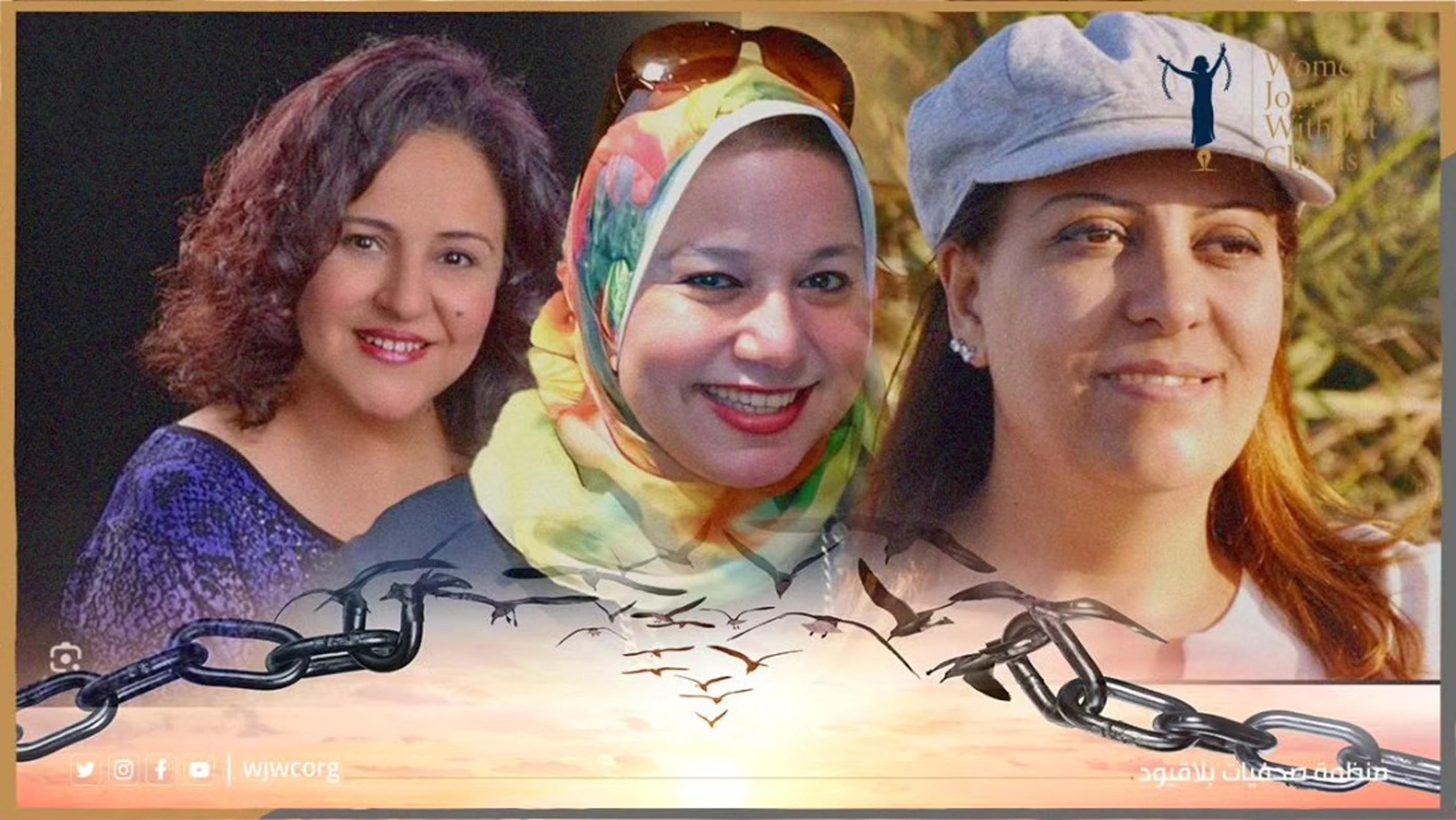Wjwc News

Egypt Releases Three Female Journalists: WJWC Welcomes Step, Deems It Insufficient
The Women Journalists Without Chains (WJWC) organization has praised the decision of the Egyptian authorities to release three female journalists who were detained in 2022.
However, WJWC asserts that this action is insufficient in effectively addressing the ongoing challenges to press freedom in Egypt. Khaled El-Balshy, the head of the Egyptian Journalists Syndicate, announced the release of Manal Ajrama, Hala Fahmy, and Safaa Al- Korbigi on Wednesday, February 7, though the reasons behind their release remain unclear.
The circumstances surrounding their release are a cause for concern. Safaa Al- Korbigi and Hala Fahmy were arrested in April 2022 after their homes were raided, while Manal Ajrama, the deputy editor-in-chief of Radio and Television magazine, was arrested in November 2022. Prior to their release, these journalists faced charges of joining a terrorist group, promoting its ideas, and spreading false news. These charges are believed to be a result of their exercise of freedom of expression, often demonstrated through critical social media posts addressing authorities or societal issues.
WJWC expresses apprehension about the potential re-arrest of these journalists and calls for the immediate and unconditional release of all incarcerated journalists in Egypt. The organization also advocates for addressing the injustices faced by these journalists during their detention.
This incident underscores a broader pattern wherein the Egyptian authorities employ imprisonment and detention as means to suppress journalistic work and instill a climate of fear and self-censorship. According to WJWC's monitoring unit, there are currently 45 male and female journalists detained by the Egyptian authorities.
Detained journalists in Egypt face deplorable conditions that not only violate their basic humanity but also contravene both local and international laws and conventions. They are frequently denied visits, with minimal contact with their families or legal representatives. Shockingly, throughout 2023, the majority of detained journalists in Egyptian prisons did not receive any visits from their relatives or lawyers.
WJWC has received reports indicating that the Egyptian authorities prevent detained journalists from exercising and being exposed to sunlight. Furthermore, detainees often endure starvation due to inadequate food provisions, exacerbated by the closure of inmate stores for extended periods. Privacy violations persist with the presence of surveillance cameras inside cells, including solitary confinement units, and detainees are subjected to torture through constant exposure to bright lighting.
Moreover, the dignity of detained journalists is consistently violated through frequent and invasive prison searches, including personal searches in sensitive areas, often accompanied by severe and repeated beatings. Some journalists endure prolonged periods of solitary confinement, worsening their already dire circumstances. These appalling conditions highlight a systemic disregard for human rights within Egypt's prison system, particularly concerning the treatment of journalists.
WJWC commends the Egyptian Journalists Syndicate for its efforts in advocating for detained journalists and urges the Egyptian authorities to take the following actions:
• Immediately release all male and female journalists currently detained in prisons.
• Prioritize the protection of their physical and psychological well-being, ensuring regular access to legal counsel and family visits.
• Cease and review laws that infringe upon press freedom and hinder journalists' work, while also endorsing legislation that guarantees the right to access information.
Released by:
Women Journalists Without Chains
February 8, 2024
